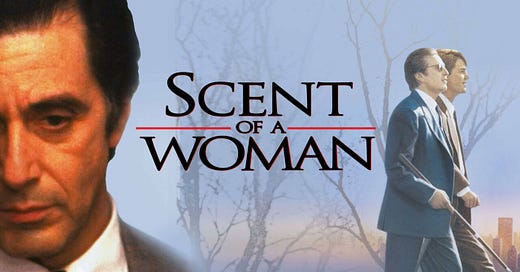Recently, I had the opportunity to rewatch the film "Scent of a Woman." If you haven’t seen it, it stars Al Pacino as Frank Slade, a retired Army Lieutenant Colonel who, due to a tragic military accident, has lost his sight. The movie explores the ethical dilemma of suicide, all within the backdrop of a postmodern context. The film tries to squeeze some…
© 2025 Texas John Slaughter
Substack is the home for great culture





